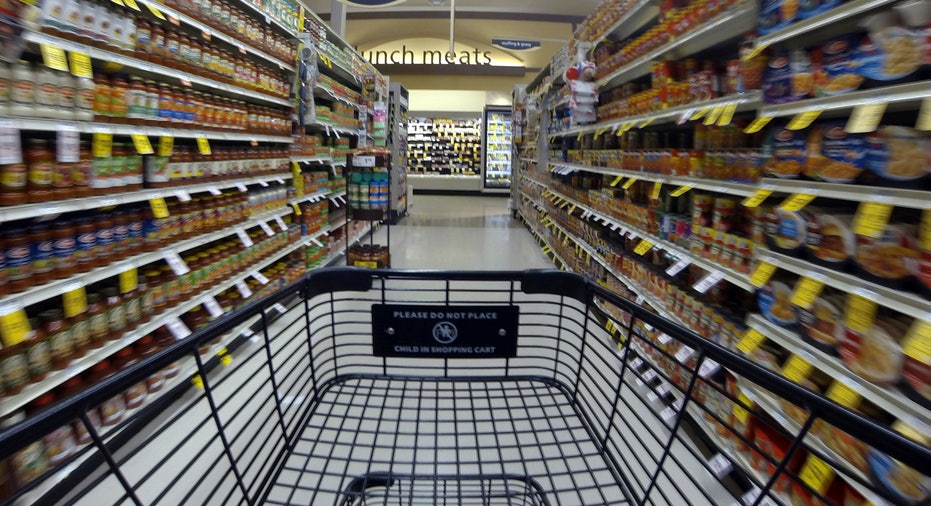Will the Bayer-Monsanto Deal Fail the Food System?

Two of the world’s largest farm suppliers – Bayer, a German drug and crop chemical maker, and Monsanto (NYSE:MON), the world’s largest maker of genetically modified seeds – announced a $66 billion mega-merger Wednesday that could potentially reshape the world’s food supply.
“This deal is a disturbing step in the corporate consolidation of our global food supply. Monsanto owns approximately a quarter of the world’s seed supply and Bayer is one of the world’s top 10 chemical companies,” Megan Westgate, director of the Non-GMO Project, a non-profit group aimed at getting genetically modified organisms (GMOs) labelled, tells FOXBusiness.com.
GMOs have been a controversial topic for decades and account for 75% of conventional processed foods currently in the U.S. And, according to Consumer Reports, 72% of Americans says they try to avoid buying them when they shop.
“GMO crops don’t offer any consumer benefits, and they pose a lot of risks. The public is increasingly demanding food that has not been genetically engineered or sprayed with chemicals,” adds Westgate.
And, major food corporations are changing to keep up with consumer demand. Last year, Campbell’s Soup (NYSE:CPB), General Mills (NYSE:GIS), Mars, Kellogg’s (NYSE:K) and ConAgra Foods (NYSE:CAG) all announced they will label GMOs on their products.
“GMO has evolved to be a top consumer food issue reaching a critical mass of 92% of consumers in favor of putting it on the label,” Campbell’s CEO Denise Morrison said in a statement.
Now food activists are worried that this merger could result in more genetically modified crops in an already over-saturated U.S. market as well as other countries around the world that have banned or partially banned the seeds. There are at least 26 countries, including Russia, Italy, Poland, Greece, France, Hungary and Australia that have bans in place.
“This new mega corporation could now own one-fourth of the combined global market for seeds and pesticides. When a company verges this close to a monopoly of our food system, alarm bells should ring out all around the world,” says filmmaker Daryl Wein, who directed “Consumed,” a dramatic thriller that explores the controversial world of genetically modified food.
Bayer CEO Werner Baumann tells FOX Business Anchor Liz Claman that this deal is extremely beneficial to not only shareholders but farmers too.
“If you look at humongous challenges that growers are confronted with of having to produce evermore on limited acreage in order to feed ever-growing populations, our purpose is to bring better solutions faster to growers so they can increase yield and with that contribute to feeding a rapidly growing population,” Baumann said.
Monsanto CEO Hugh Grant reiterated those sentiments to Claman.
“I have been talking about this for years—that unlocking the innovation and bringing chemistry, seeds, biotechnology and data science together – I think that is a big piece for the future of this industry.”
Dr. V.A. Shiva Ayyadurai, a scientist and CEO of CytoSolve, Inc. – a biotechology company focused on developing therapeutics, nutraceuticals and functional foods – says this deal is a way for Monsanto, which is widely known as a controversial company, to hide under a more iconic brand.
“It provides Monsanto an opportunity to hide within the cover of Bayer’s brand, known primarily to the public as the manufacturer of Aspirin — a far less dangerous brand equity than being known as creators of dangerous pesticides such as Round Up (Glyphosate) and untested GMOs,” Ayyadurai tells FOXBusiness.com. “I am not pro- or anti-GMO. However, our research shows that the current safety assessment standards for GMOs are non-existent.”
"Last year, the World Health Organization classified Glyphosate as a probable carcinogen. So most GMO foods that you eat have been sprayed by a chemical that is likely to cause cancer," says Westgate.
Christi Dixon, a Monsanto spokesperson, says that GMOs are safe and identical to their non-GMO counterparts in terms of nutrition, taste and flavor.
“In thousands of independent studies since the 1980s, not one health issue has ever been identified,” Dixon told FOXBusiness.com last year.



















